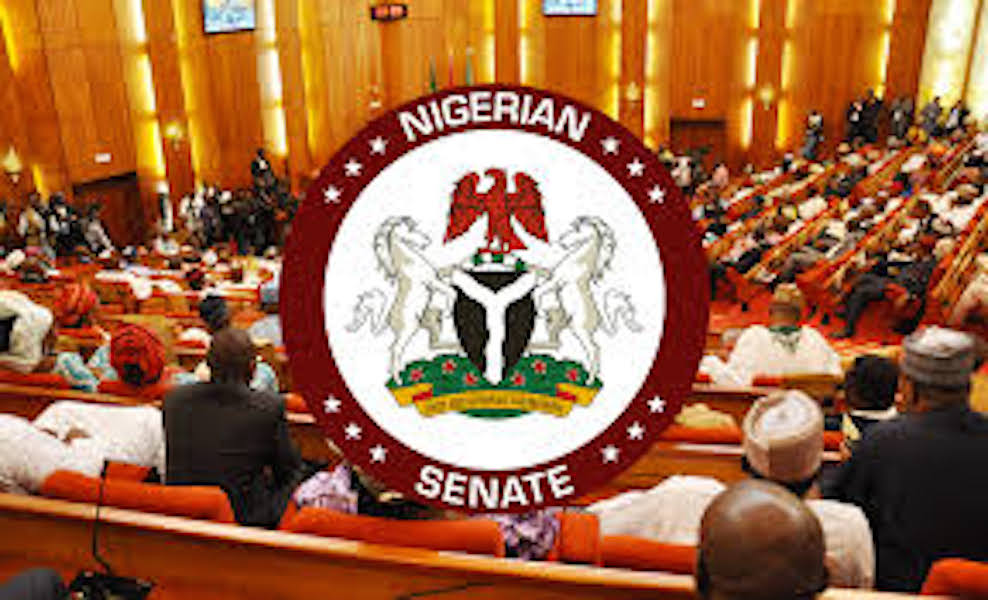News
Hackers steal $664m from crypto investors in six months

Hackers steal $664m from crypto investors in six months
Crypto investors lost $664m to hackers in the first half of the year, marking a more than 50 per cent increase compared to the same period last year, according to data from DefiLlama.
The largest aggregator for decentralised finance stated that the bulk of those losses came from phishing attacks and compromised private keys.
It noted that crypto hackers were often skilled bad actors, who work for cybercrime syndicates, such as North Korea’s state-sponsored Lazarus Group, which was suspected of having stolen billions in crypto.
DefiLlama stated that high-powered hacking tools were not usually available to the army of amateur hackers on the internet.
However, experts are raising concerns about the growing threat of open-source infostealers, malicious software designed to steal sensitive financial information from victims’ computers.
These infostealers target crypto wallet passwords, private keys, and other sensitive data.
This year, compromised private keys have led to some of the biggest crypto hacks, including the theft of $305m from the DMM Bitcoin exchange.
A blockchain expert and Team Lead at SIRFITECH, Adewale Kayode, told The PUNCH that Nigeria had emerged as a hub for cryptocurrency scams, with the country ranking second globally in crypto adoption, trailing only India.
READ ALSO:
- Saudi Arabia, Jordan airdrop food aid to Gaza
- Niger Gov Bago stirs controversy, orders assault, arrest of cleric (+ Video)
- Ndidi tips Lookman for CAF Player of the Year
Kayode attributed the high adoption rate to the economic hardship in the country, with many individuals seeking alternative means to supplement their income.
However, that had created a fertile ground for scammers to exploit, resulting in a staggering $8m lost to crypto scams in Nigeria alone over the past six months, he said.
Globally, crypto scams are becoming increasingly sophisticated, with fraudsters employing multi-level marketing scams, crypto fraud, Ponzi schemes, fake ICOs, and phishing attacks to dupe victims.
The IT expert cautioned that scammers constantly innovate, utilising tactics such as replacement-by-fee attacks to avoid detection.
Kayode emphasised the urgent need for regulatory measures to combat the rising trend of crypto scams, stressing that regulation is crucial to protecting individuals and ensuring the integrity of the cryptocurrency market.
According to a recent report by Proofpoint researchers, cybercriminals are using various tactics to target cryptocurrency, resulting in significant financial losses.
The report, titled “How Cyber Criminals Target Cryptocurrency,” highlighted two primary objectives of cybercriminal threat actors: traditional fraud and targeting decentralised finance organisations.
Traditional fraud tactics involve business email compromise attacks, targeting individuals and resulting in financial losses.
Meanwhile, the targeting of DeFi organisations aims to compromise cryptocurrency storage and transactions, potentially leading to follow-on attacks.
“While most attacks require a basic understanding of how cryptocurrency transfers and wallets function, they do not require sophisticated tooling to find success,” the researchers said.
Hackers steal $664m from crypto investors in six months
PUNCH
News
Trump Approves Deployment of 200 U.S. Soldiers to Support Nigeria’s Fight Against Terrorists

Trump Approves Deployment of 200 U.S. Soldiers to Support Nigeria’s Fight Against Terrorists
President Donald Trump has approved the deployment of 200 U.S. soldiers to Nigeria to assist the country in its ongoing fight against terrorist groups including Boko Haram and Islamic State West Africa Province (ISWAP).
The deployment follows U.S. airstrikes in Sokoto and comes at the request of President Bola Tinubu, reflecting a deepening security partnership between the United States and Nigeria. (gazettengr.com)
The American troops are scheduled to arrive in Nigeria in the coming weeks to provide training and technical guidance to Nigerian forces. The U.S. military will focus on air and infantry operations, intelligence gathering, and joint mission coordination to enhance the effectiveness of Nigeria’s counter-terrorism efforts.
Major-General Samaila Uba, spokesperson for the Nigerian Armed Forces, clarified that the U.S. troops will not engage in direct combat, but will work closely with Nigerian forces to improve strategic operations and rapid response capabilities.
A spokesperson for U.S. Africa Command (AFRICOM) stated, “The terrorist activity in West Africa—and Nigeria specifically—is something we’re incredibly concerned with. We want to partner with capable and willing partners to address these shared security concerns.” (newsmax.com)
READ ALSO:
- Atiku Rejects Mixed Result Transmission
- Two Siblings Arrested for Killing Elder Brother, Burying Him in Imo
- Canada Mass Shooting: Nine Dead in School, Residence Attack
This deployment complements Nigeria’s ongoing counter-terrorism operations, including Operation HADIN KAI (OPHK), which has recorded multiple successes in neutralising insurgents, rescuing kidnapped victims, and recovering weapons caches. (gazettengr.com)
The move comes amid heightened international attention on Nigeria’s security crisis, particularly in the North-East and North-West regions, where terrorist attacks and banditry continue to threaten civilian safety, disrupt communities, and hamper economic activities. (stripes.com)
Local officials and analysts say the U.S. deployment is expected to strengthen intelligence sharing, enhance operational coordination, and improve Nigeria’s military readiness in combating insurgents while maintaining national sovereignty.
The announcement underscores the growing bilateral security cooperation between Nigeria and the United States, highlighting both nations’ commitment to counter-terrorism, regional stability, and civilian protection.
Trump Approves Deployment of 200 U.S. Soldiers to Support Nigeria’s Fight Against Terrorists
News
Senate Bows to Pressure, Mandates Electronic Transmission of Election Results

Senate Bows to Pressure, Mandates Electronic Transmission of Election Results
The Nigerian Senate has officially approved the electronic transmission of INEC election results, amending the Electoral Act to modernize the voting process and strengthen election transparency ahead of the 2027 general elections.
The move comes after widespread protests, civil society advocacy, and pressure from political figures, including former presidential candidate Peter Obi, demanding real-time digital transmission of poll results to curb electoral fraud.
Under the amended Clause 60 of the Electoral Act, presiding officers are now required to digitally transmit election results from each polling unit directly to the INEC IReV portal immediately after the EC8A result form is signed and stamped. In situations where network connectivity fails, the signed paper EC8A forms will remain the official source for result collation and declaration.
READ ALSO:
- Iran Warns U.S. Against Israeli Pressure as Nuclear Talks Resume
- Lagos Announces Four-Week Partial Closure of Lagos-Abeokuta Expressway
- Ido-Ayegunle Killings: Monarch Confirms Arrest of Four Suspects
Experts describe the amendment as a major step toward digital voting transparency, though some critics caution that the manual fallback option could limit the full benefits of real-time election result transmission.
The bill will now be harmonized with the House of Representatives version before being sent to the President for assent, signaling a commitment to credible elections and improving public trust in Nigeria’s electoral process.
This legislative update is expected to play a key role in Nigeria 2027 elections, reducing vote manipulation and ensuring that INEC election results are transmitted securely, efficiently, and transparently across the country.
Senate Bows to Pressure, Mandates Electronic Transmission of Election Results
News
Lagos Announces Four-Week Partial Closure of Lagos-Abeokuta Expressway

Lagos Announces Four-Week Partial Closure of Lagos-Abeokuta Expressway
The Lagos State Government has announced a partial road closure on the Lagos-Abeokuta Expressway to allow the Federal Ministry of Works carry out critical rehabilitation on failed sections of the road.
The Commissioner for Transportation, Mr Oluwaseun Osiyemi, disclosed this in a statement issued on Tuesday, noting that the repairs would cover the stretch between U-Turn Bus Stop and Sango Tollgate, affecting both inbound and outbound lanes.
According to him, the rehabilitation work will begin on Wednesday, February 11, and end on Wednesday, March 11, spanning a four-week period.
Osiyemi explained that the project would be executed in two phases to minimise traffic disruption.
READ ALSO:
- Ido-Ayegunle Killings: Monarch Confirms Arrest of Four Suspects
- Oyo Muslims Reaffirm Loyalty to Sultan on Islamic Matters — Grand Chief Imam
- US to Deport 18 More Nigerians on ‘Worst-of-the-Worst’ Criminal List (Full Names)
For Phase One, which affects Abeokuta-bound traffic, work will run from February 11 to March 4. During this period, vehicles travelling from Lagos/Abule-Egba toward Abeokuta/Sango Tollgate will be diverted to one half of the carriageway, approximately 20 metres away from the active work zone.
He said rehabilitation would be carried out one lane at a time, with traffic redirected to completed sections as work progresses, while motorists on the Lagos-bound carriageway will continue to enjoy free traffic flow.
Phase Two, which affects Lagos-bound traffic, will take place from March 4 to March 11, covering the stretch from Obadeyi Bus Stop to Ekoro Junction. Traffic from Abeokuta/Sango Tollgate toward Lagos/Abule-Egba will be similarly diverted through half of the road during construction.
Osiyemi assured motorists that adequate traffic management measures would be deployed throughout the duration of the project.
He urged road users to plan their journeys, obey traffic signs, and cooperate with traffic officials, appealing for patience as the repairs are carried out in the interest of public safety.
Lagos Announces Four-Week Partial Closure of Lagos-Abeokuta Expressway
-

 News2 days ago
News2 days agoBREAKING: Tinubu Holds Reconciliation Meeting With Wike, Fubara, Rivers Leaders at Aso Rock
-

 Business2 days ago
Business2 days agoBoI Gets CBN Approval to Launch Non‑Interest Banking Window in Nigeria
-

 metro1 day ago
metro1 day agoLeadership Crisis at NAHCON as Chairman Abdullahi Saleh Usman Resigns
-

 metro3 days ago
metro3 days agoNnamdi Kanu Orders Permanent End to Monday Sit-at-Home in South-East
-

 News1 day ago
News1 day agoUS Judge Orders FBI, DEA to Release Tinubu’s Criminal Records, Faults Delays
-

 News1 day ago
News1 day agoOyo Muslims Reaffirm Loyalty to Sultan on Islamic Matters — Grand Chief Imam
-

 News2 days ago
News2 days agoOWN Calls for Immediate Resignation of INEC Chairman
-

 International1 day ago
International1 day agoUS to Deport 18 More Nigerians on ‘Worst-of-the-Worst’ Criminal List (Full Names)















